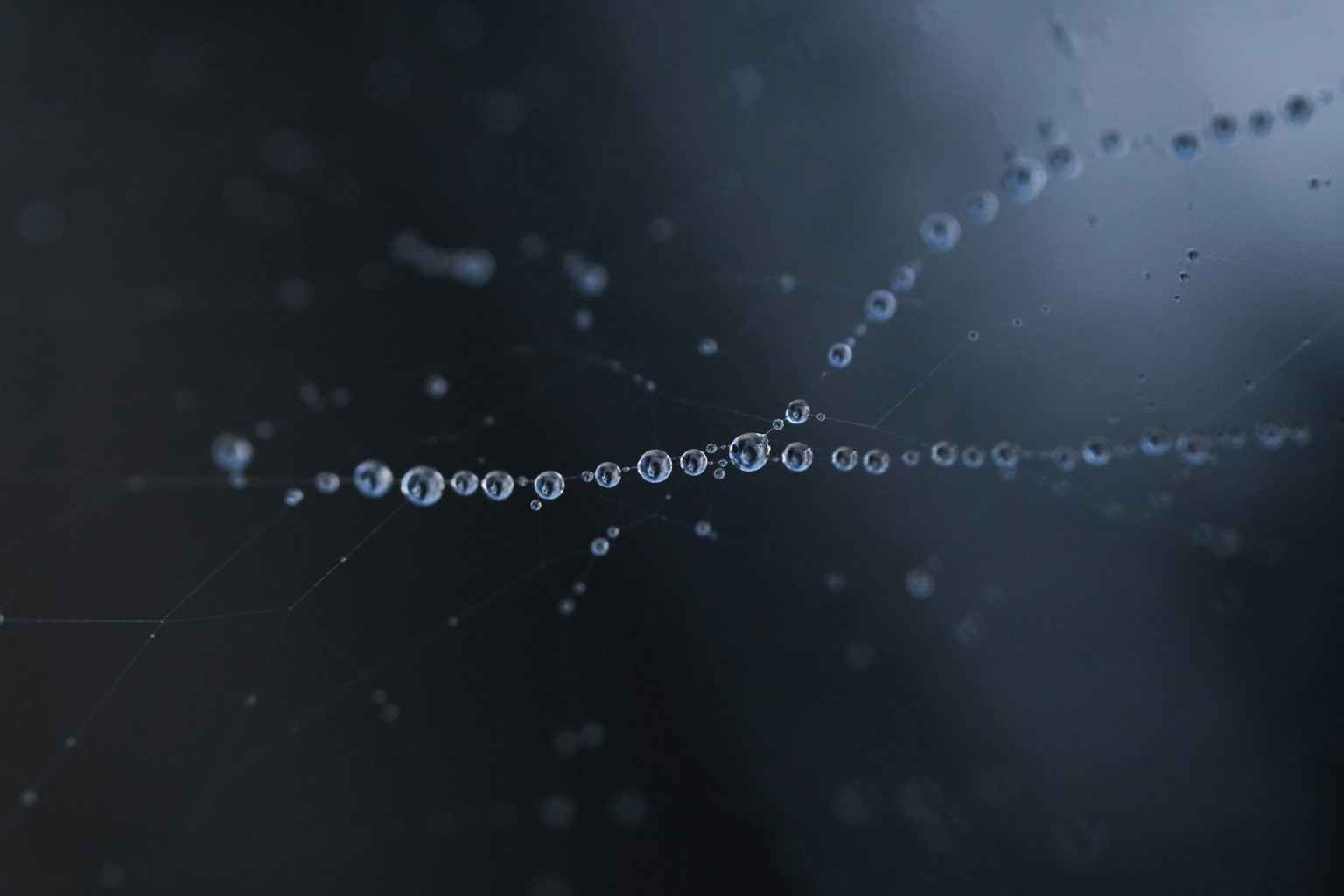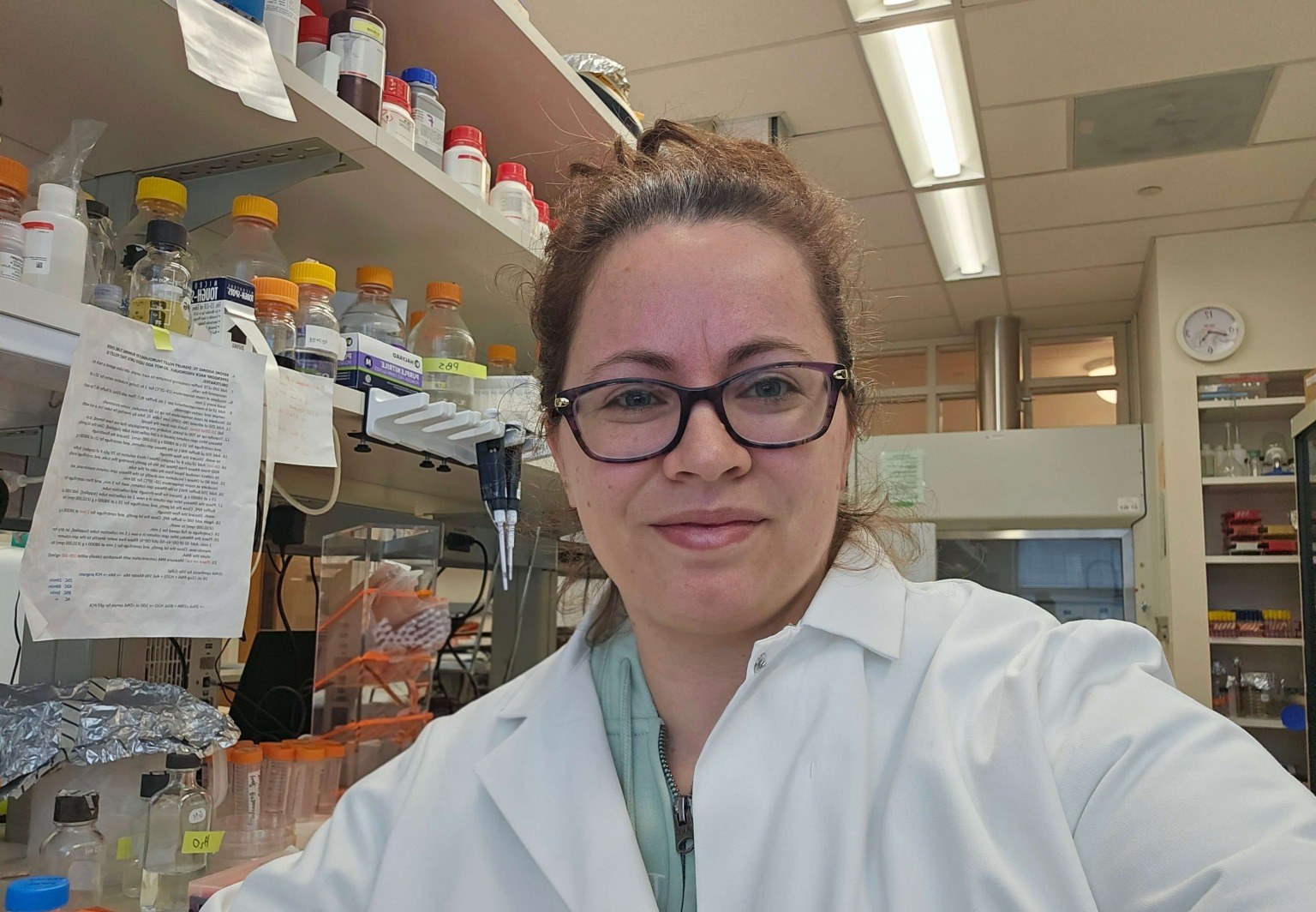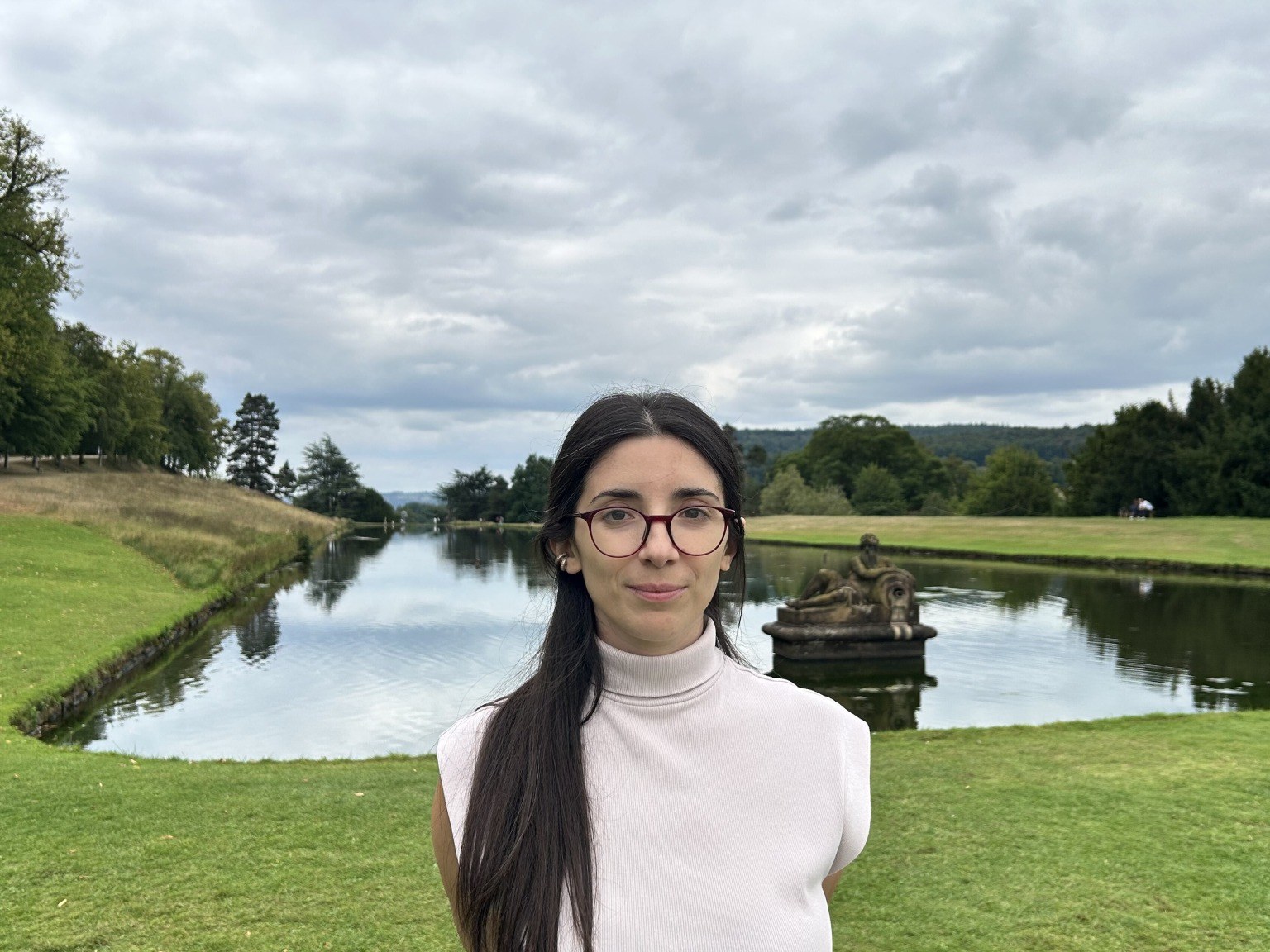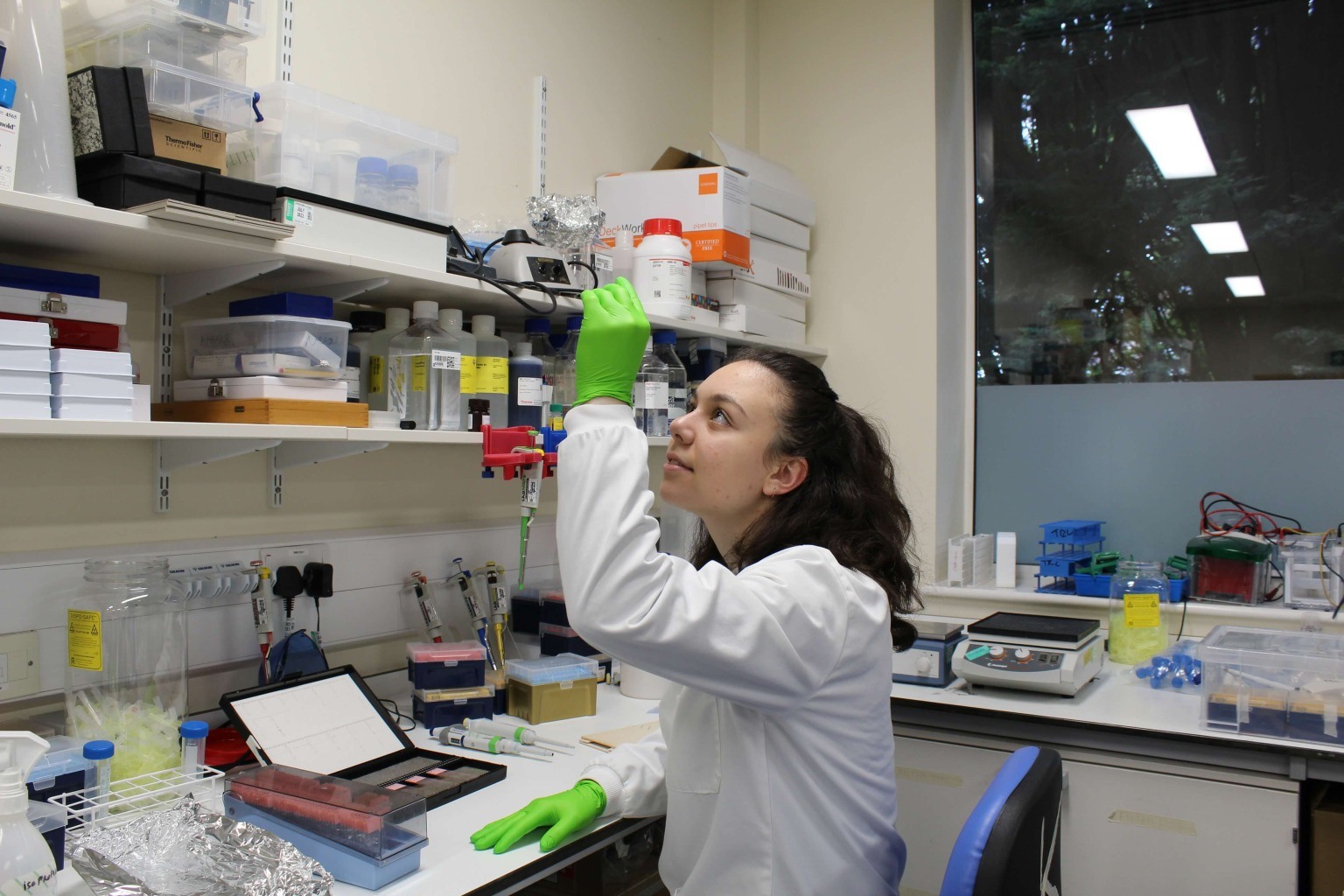
Exploring the invisible: Dr. Ariadni Boziki simulates the molecular world
Chrysovalantou Kalaitzidou

Magazine / Interviews , Science
She earned a BSc in Biology at the National and Kapodistrian University of Athens and remained there to complete a PhD in Molecular Microbiology, investigating how fungi rely on tiny membrane gates to import ready-made building blocks that let them grow efficiently. Her path then led her to the Roslin Institute at the University of Edinburgh, where she examined how the pathogen Listeria monocytogenes regulates its virulence. Today, she is an Associate Research Scientist at Yale University, focusing on a friendly member of the human gut microbiota and the molecular tactics it uses to cope with our changing diets. Along the way, she has balanced rigorous research with major life changes and has learned the value of resilience in the face of challenges. Dr Krypotou’s journey demonstrates how a woman in science can lead with both intellect and heart, shedding light on the hidden world of microbes while inspiring the next generation.
Can you tell us about your research and what drew you to study the gut microbiota?
I am studying a commensal bacterium that lives within the human gut. This is one of the “good” bacteria that promote human health. A few years ago, I started learning about these tiny microorganisms that exist in our bodies and how they play critical roles in our health, and any disturbances in these communities might lead to disease. I became fascinated by this and wanted to understand how these bacteria succeed in persisting within our guts and how our diet affects them. My research focuses on identifying the molecular players and mechanisms that help this bacterium survive when it encounters different types of food or goes through starvation during periods when the host is not eating.
What made you interested in microbiology and molecular biology in the first place? Was there a moment that shaped your path?
As an undergraduate student, I was exposed to various areas of biology, but I found microbiology especially captivating. I was fascinated by how easily one could manipulate the DNA of microorganisms and perform large mutagenic screens to uncover new phenotypes. At the same time, I realized that I was not comfortable working with animals. I felt deeply guilty on the few occasions I had to sacrifice mice for experiments, so I gravitated toward working with microorganisms. In terms of molecular biology, I was always curious to understand how cells function and what roles DNA, RNA, and proteins play in that process. My path has been shaped by different opportunities that came my way and I made the best of each. I just kept following scientific topics that intrigued me and wanted to learn more about, which eventually led me where I am today.
Your work bridges basic science and potential clinical impact, especially in understanding the human gut microbiota. How do you decide which questions to pursue, and how do you find yourself balancing curiosity and real-world relevance?
The central question in my research is how diet affects the bacteria in our gut. In the lab, we grow commensal bacteria in the presence of different carbohydrates or under starvation conditions to explore the molecular mechanisms involved in their responses. While our work is mostly in the realm of basic science, understanding the biology of these microbes is essential to developing clinical applications. This connection between fundamental insight and real-world relevance guides the questions I choose to explore. One such example is the development of probiotic supplements designed to survive in the gut and support the treatment of intestinal disorders. To achieve that, we first need to understand how gut microbiota behave and which conditions either help them flourish or cause their decline.
Structural biology and molecular microbiology are complex fields. Could you walk us through one of your recent studies, explaining its core findings for a general audience?
The general dogma of biology is that a protein has a specific structure and that structure is associated with a specific function. However, recent research suggests that some proteins function precisely because they lack structure. My research focuses on such a protein with an unstructured region that turns out to be essential for survival in the gut. We discovered that this region helps the protein form clusters, known as condensates, inside the cell. These clusters alter the protein’s function by triggering the expression of genes required for gut colonization. Although similar forms of protein condensation have been observed in eukaryotic organisms, we were the first to demonstrate this in a gut-resident bacterium [1]. Importantly, this process is essential for the microbe’s ability to colonize the gut.
The greatest lesson you learn when you decide to do a PhD is how to handle failure and rejection…Failure is just part of the process. It is always disappointing, but when something works, the reward is even greater!
Every journey has challenges. What was one of the hardest moments in your career, and how did you overcome it?
Much like many others, the pandemic was one of the hardest periods in my career. There were many unknowns, constant anxiety, and simultaneous pressure to keep research going. Even during lockdown, while confined to my apartment, I was expected to produce new scientific findings, even if it was just computer-based work. I had no choice but to keep trying to move projects forward in any way I could. Eventually, some of the work I did during that time led to new findings that I am now preparing to publish. That period profoundly changed my perspective on the priorities in life. It made me more aware of the need to pursue a better work-life balance.
Science often comes with rejections and failed experiments. How do you stay motivated, and what advice would you give young scientists facing setbacks?
The greatest lesson you learn when you decide to do a PhD is how to handle failure and rejection. I would say that more than 60% of my time is spent optimizing and tweaking failed experiments just to get the few that eventually work and reveal something new and exciting. My motivation all these years has been comprised of my personal curiosity and stubbornness. For me, research is like a puzzle that I always want to solve and get to the “how” and “why”. Dealing with failed experiments taught me to be more critical of mine and others’ results; it has made me a better scientist by being cautious with experimental design and prioritizing precision. Failure is just part of the process. It is always disappointing, but when something works, the reward is even greater!
Looking back, what achievement are you most proud of so far?
The biggest achievement in my career is publishing part of my research in the high-impact journal Science. Starting from a lab in Greece, I used to admire researchers who published in the major journals like Nature, Cell, or Science. It always felt like a distant dream. Seeing my name there was a very rewarding moment.
You’re also a new mother; how do you navigate the balance between motherhood and the demands of a research career?
Returning to work after maternity leave was challenging. People often talk about “pregnancy brain”, but in my experience, the real struggle came after birth due to sleep deprivation. I had trouble concentrating on even basic tasks and found it hard to follow scientific discussions or seminars. Thankfully, this improved over time. Now I try to work efficiently during lab hours so that I can spend quality time with my toddler at home. In the past, I often worked during evenings and weekends. Now, those moments are reserved for my family. I occasionally catch up on work once my son is asleep, but I have learned to adjust how I manage my energy and efforts.
What are your hopes and aspirations for the next steps in your career?
After many years of research training, I hope to take on a leadership role where I can mentor and guide junior researchers in achieving their goals. My career so far has equipped me with a wide range of skills that I want to apply as I transition into a more translational environment and to work on projects that could have a direct impact on human health.
What’s one piece of advice you wish you had received earlier, and would now offer to someone considering a research career?
Right now, both academia and industry are facing challenges, with considerable uncertainty and limited funds. This makes it difficult to secure a research position, given the large number of highly qualified candidates in the job market. One thing I wish I had known earlier is the value of developing a broad set of technical skills. The more skills you have, the more flexible and competitive you become, whether you choose academia or industry, giving you the freedom to decide which environment fits best. Research is not for everyone; it demands a high level of personal motivation. However, it can also equip you with tools that are transferable across many different career paths. Staying open, curious, and being willing to learn, does make a difference.
Find Dr. Aimilia Krypotou on LinkedIn.
Sources:
[1] Emilia Krypotou et al. ,Bacteria require phase separation for fitness in the mammalian gut.Science379,1149-1156(2023).DOI:10.1126/science.abn7229

Chrysovalantou Kalaitzidou

Thaleia-Dimitra Doudali

Danai Korre
